World Team Time Trial Champion, World Professional Pursuit Champion, Tour de France stage winner, ‘chronoman,’ prologue specialist par excellence and winner of nigh on 100 races, Bert Oosterbosch was straight out of the top drawer.
Unfortunately he was lost to this world at just 32 years-of-age.
VeloVeritas spoke to his nephew Erwin Ooosterbosch, who in turn spoke to Bert’s family to give us their remembrances of Bert Oosterbosch the man and Bert Oosterbosch the force of nature on a bicycle – in particular, a Raleigh bicycle.
What kind of person was the young and then adult Bert Oosterbosch?
“As a child Bert was always full of energy and didn’t exactly know how to lose it, when he started cycling he could put his energy in that.
“He loved to play pranks on people, always harmless but he loved to joke around and was a little naughty at some times.
“As a grown up Bert was a very kind and lovable man, easy to be around.
“He still kept his boyish ways but could be serious when the occasion asked for it.”
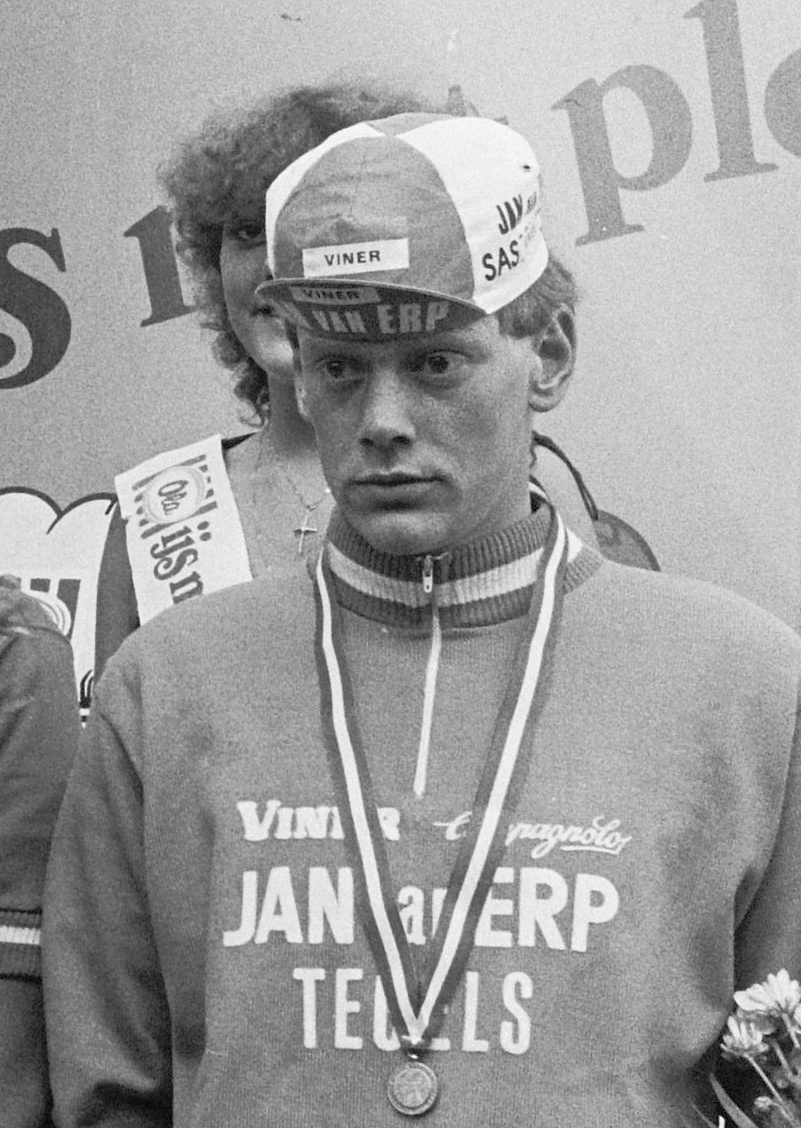
When and how did he begin cycling – and who were his heroes?
“When he was about seven years of age he wanted a bike because his uncle Geert raced with the 14-15 year olds and his father Frans used to race also.
“He really enjoyed riding on that bike but not with the idea of becoming a racing cyclist yet.
“At that time Bert also wasn’t as slim as he became later on, in fact he hadn’t really lost his puppy fat yet.
“When his uncle used to race at that time it was normal to go to the races on the bike, he didn’t really care yet about the races he just wanted to tag along!
“When his uncle started to become a better rider in the youth categories, Bert started looking up to him and the fact that his female teacher was also a member of the same club as his uncle named R en TC Wilhelmina made him join the club.”
Who was his coach/mentor as an amateur and did that relationship continue when he turned professional?
“Especially Rini Wagtmans and Jan Gisbers but with Rini the relationship kept on going throughout his life and career.
“He really became his trustee for a lot of things.”
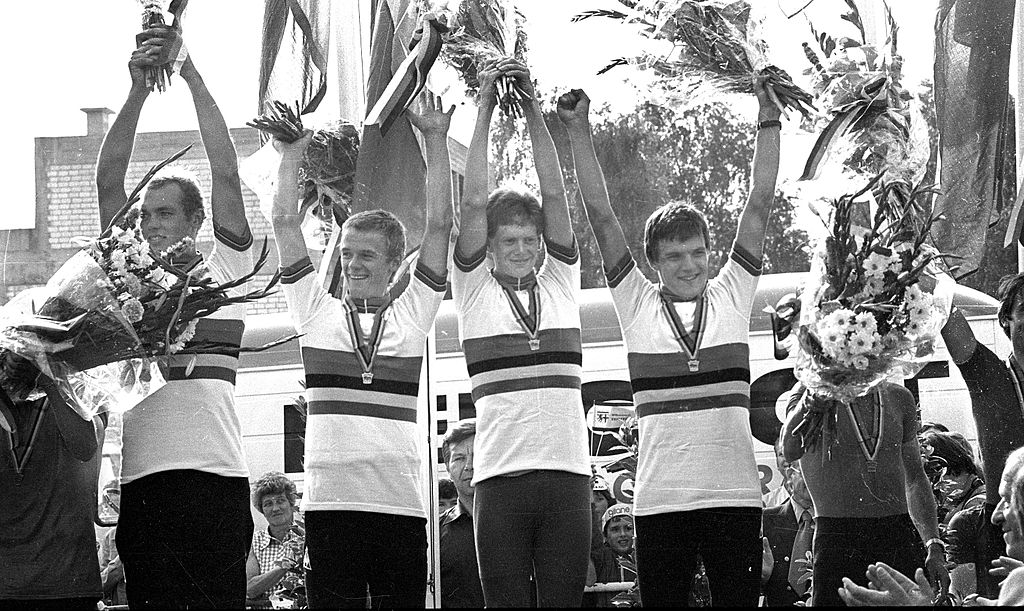
1978 was a great year for him, World TTT Champion.
“Two years prior to that as a junior it became obvious that Bert had a big talent, he became one of the best amateurs in the world and won about 30 races.
“Together with Guus Bierings, Bart van Est and Jan van Houwelingen he was picked by Rini and Jan for the World Championship and especially for the TTT.
“They absolutely smashed the Worlds 100km TTT – just under two hours at 1.59.51!
“He was extremely proud and knew his career was going to start from this moment on.”
1979, he turns pro and wins the World Professional Pursuit Championship – a stunning performance for a neo pro…
“He had just signed his contract with TI Raleigh when Post told him to try and compete on the track in the pursuit, Bert had never really ridden on a track and started his training a couple of weeks prior to qualify and with a little help from Post he started his track career.
“The bike Roy Schuiten used on the hour attack was brought to him and the rest is history with a sensational win in the final against Francesco Moser of Italy.
“It was unbelievable to him and the family, afterwards he was invited to Post’s house for champagne to celebrate this great victory.”
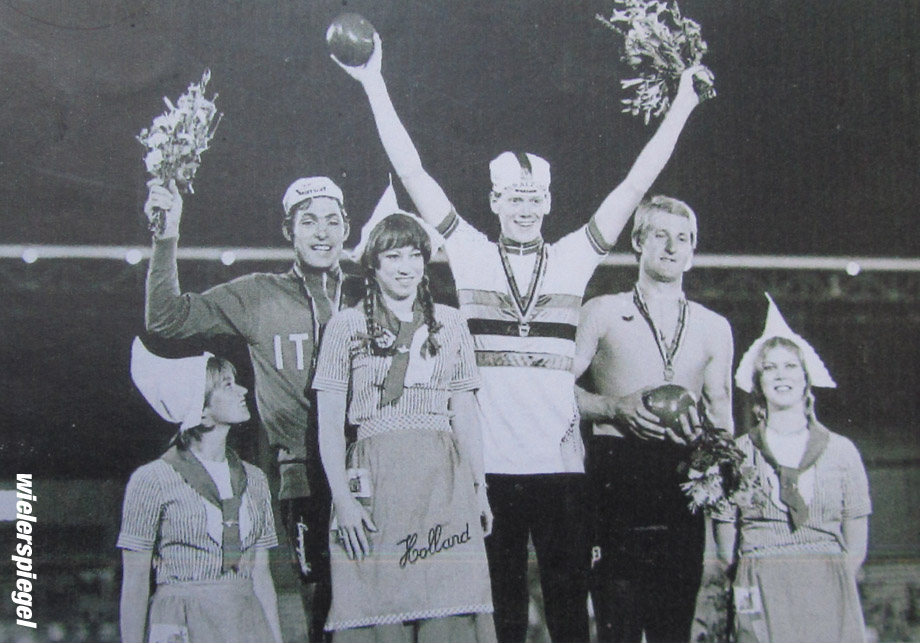
1980 and a Tour stage win, a huge result again…
“His first ever Tour was a dream come true for him, he knew this was the moment to show the world just how fast he could go on a bike.
“His first stage win was one by the book, Thurau tried to get away from the breakaway they were in, Bert got on his wheel and did a counter attack that left the other riders gasping for air.
“Not even the great Bernard Hinault could close the gap at the front of the peloton!
“His sister and mother were in a shopping mall at the time and they ran into somebody they knew that told them to get home quick because there was a possibility that Bert could win a stage as he was in the leading group, they heard him win on the radio in the car.
“He got what he wanted, he showed everyone just how fast he was on a bike.”
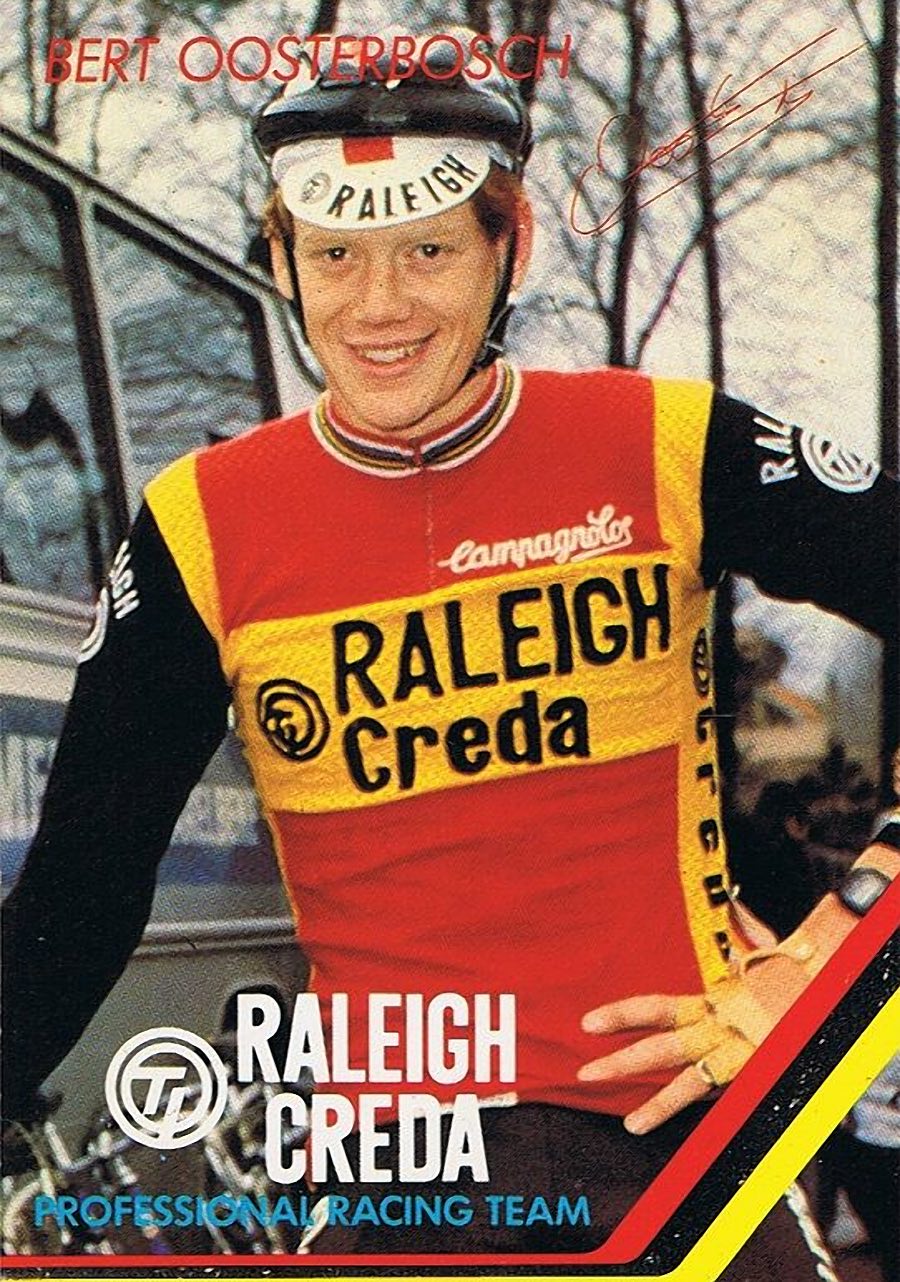
1979 to 1981 with Raleigh, all good years – why go to Daf Trucks for ’82?
“At that time Bert had shown his class by winning some races and being almost the best in most of the prologues but still it led to some problems between him and Post, exploding over a plate of crisps Bert ordered after a win (he loved crisps) and Post wasn’t having that.
“Post said take them of the table, Bert told him that if the plate goes so will he and so it happened.
“The contract was terminated at once and he rode in a white jersey as he had no team till DAF picked him up.”
And why back to Peter Post for 1983 to 1987?
“The return to Post happened because Bert won the Tour of the Netherlands in a very strong way in 1982, after getting the leader jersey in a TT the complete Raleigh team kept attacking to get Bert out of the jersey, Post had won this tour with his team since 1976 so he wanted this year to be the same.
“Bert withstood all of the attacks on his own and won the race, Post didn’t hesitate and took Bert back in.
“Also Bert wasn’t really at home with the DAF team.”
Did Bert say much about his relationship with Mr. Post?
“Post really liked Bert because of his TT qualities but also was a hard business man and there were races to be won!
“Bert was a bit closed so didn’t really talk about this really much.
“Just the fact that Post wanted you to deliver.”
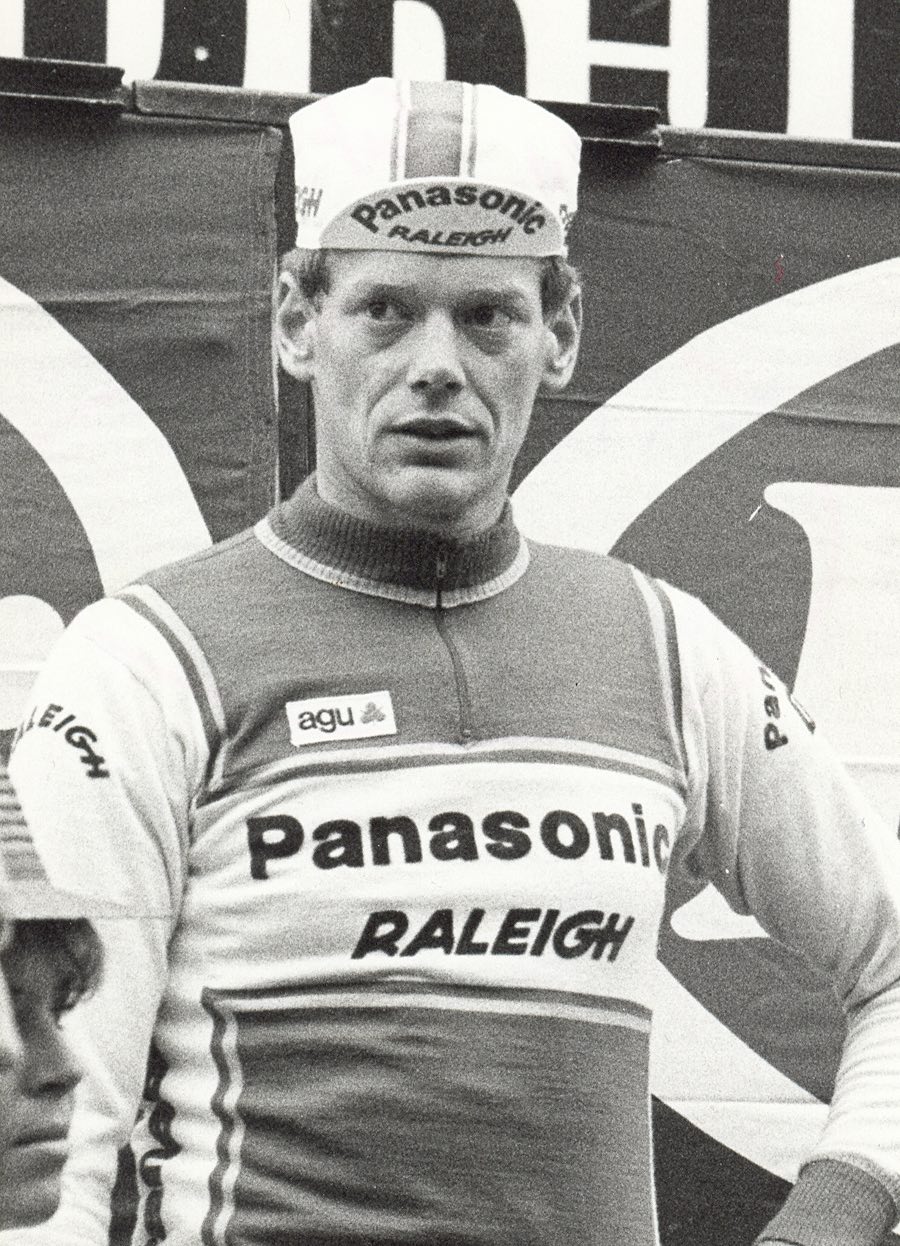
Who was he closest to on the team?
“Leo van Vliet was his best friend, they shared everything and even lived in the same village for a while.
“To this day Leo carries the prayer card of Bert’s funeral in his wallet.”
Bert was a prologue specialist, winning those in the Suisse Tour, Paris-Nice, Midi Libere, Tour of the Netherlands, Catalonia, Dunkirk, Tour of the Mediterranean, Vuelta and Valencia – how did he manage to prepare for these and still do his job for the team?
“He had the power to get a high speed quick and maintain it for a long time, the prologues were short and at that time he was one of the fastest around, it became a second nature for him.
“So for him having a really big engine he could do that all day and loved showing just how fast and strong he was to everyone and helping the team with it was a bonus.
“When he got in front of the group riding for the team you could see other riders gasping for air to stay in the wheel.”
He came close to wins in the GP des Nations and Trofeo Baracchi, were these near misses a disappointment to him?
“Yes he was disappointed about not winning those races, probably he could have won the Baracchi if he had the right team mate who was more a rider like him in the TT.
“In the GP des Nations you could see it was late in the season for him, after all the hard labour during the season he felt short and wasn’t at his best.
“As a rider who wanted to show how fast he could go, he would have wanted these races on his name of course.”
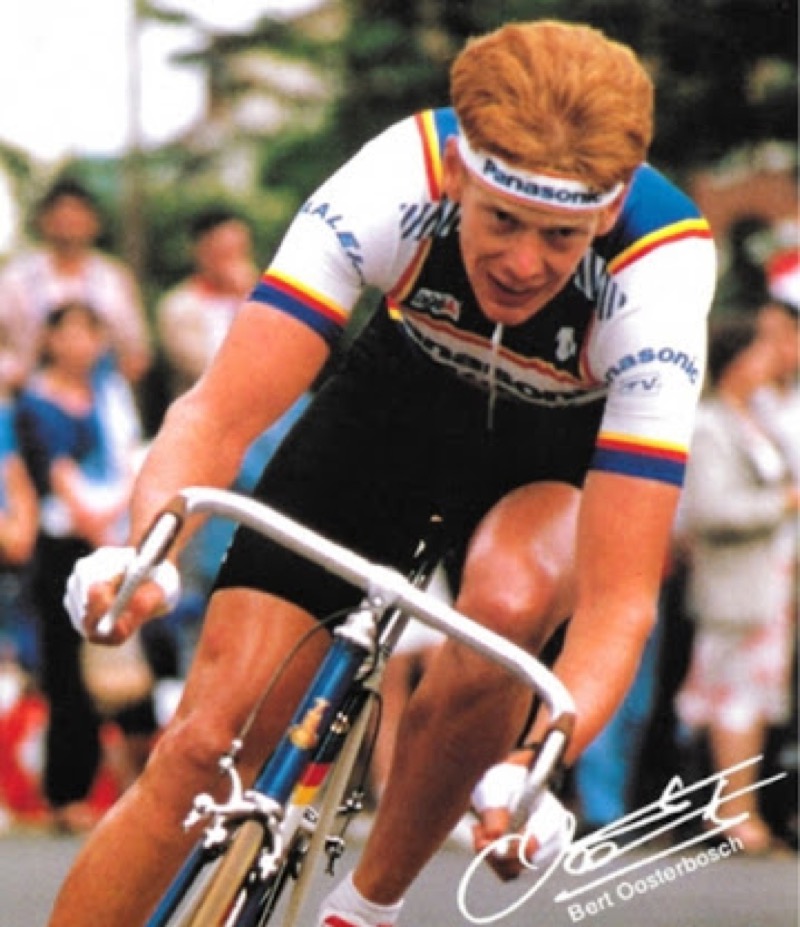
1983, a time trial and road stage win in the Tour – great rides…
“The TT in the Tour was in his words one of the best he had ever ridden in his career, that one showed that if everything fell into place like being in form no one could beat him.
“The stage where he broke away with his countryman but rival, Hennie Kuiper was a great win also, Hennie knew when he and Bert left the bunch he could gain time on the GC if he and Bert worked together.
“He knew Bert would always ride and do his share and so they came to an understanding to battle it out at the finish line with Bert winning the sprint a deux; it was the 100th Dutch win in the Tour.”
1984 and he wins the cobbled semi-classic GP E3, so not just a ‘chronoman’ then?
“At that time he could have won more big one day races if Post would have let him, but Bert had to work for the team and show his abilities in the TT’s; he still won about 96 pro races in his career but he could have done it with his class and strength.
“His father always thought he could get over the mountains to if he had tried that.
“In longer stage courses he did have a big weakness and that was being very homesick, after the first week he wanted to go home, just like in the tour of ’83 after winning two stages.”
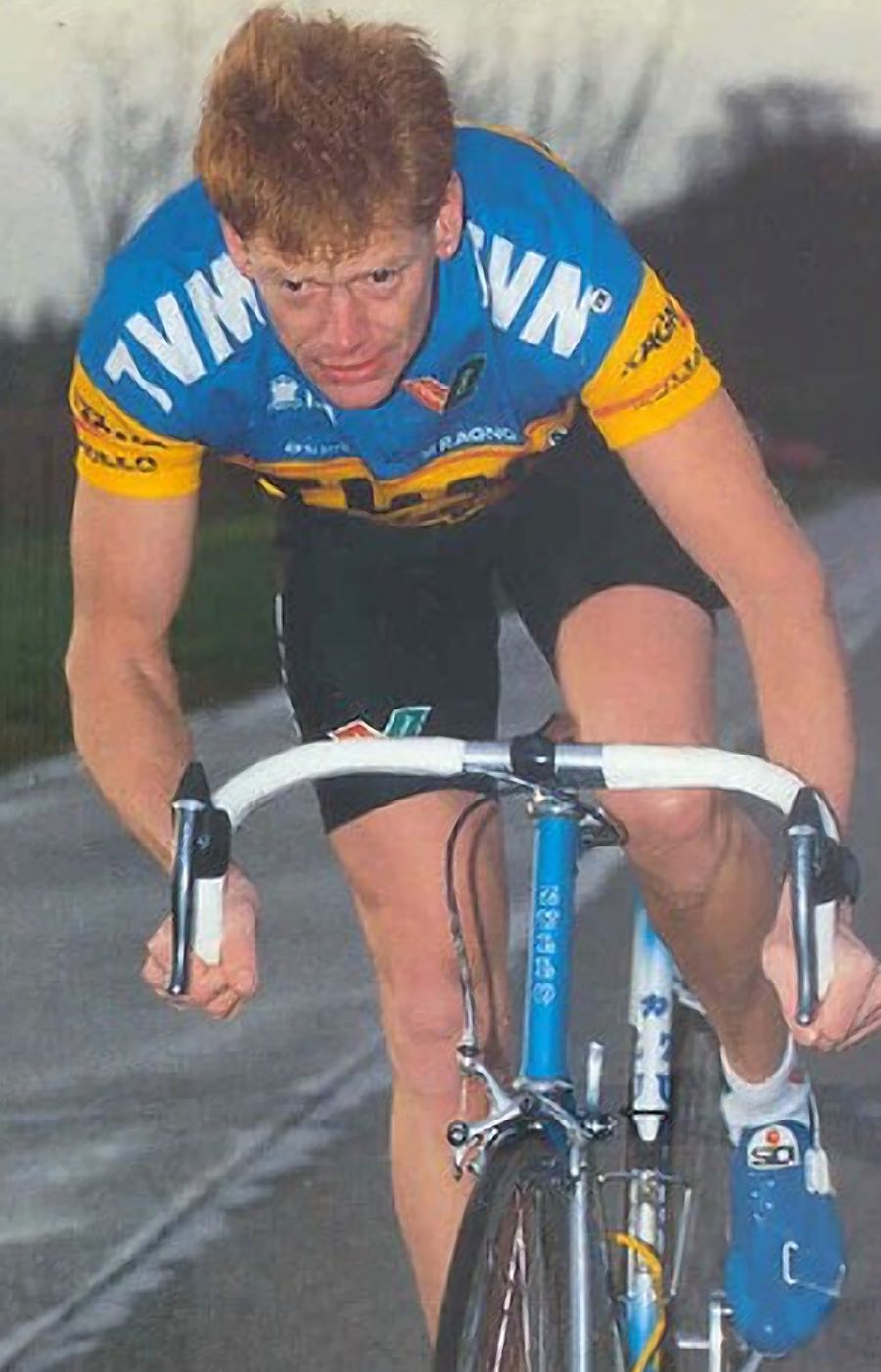
1988 and TVM, why the move and did he like the team?
“Bert had sustained multiple injuries and his power and moral got infected by that, Cees Priem his former team mate at Raleigh offered him a spot in the TVM team by talking to the manager.
“One last chance to show he still had it but it didn’t really come to that.”
Tell us about the illnesses which interrupted his career.
“Because Bert was always pushing to the limits and throwing his strength around his resistance against illnesses was getting very low and he contacted meningitis twice.
“It was a terrible sight for the family, he was lying alone in the hospital in a dark room because he couldn’t stand the daylight and was in a lot of pain.
“He didn’t even recognize his family, he was that sick and was lucky to get better.”
And the knee injury which ended his pro career?
“His knee was a problem that happened in his days as a junior, he fell in a race during the sprint and doctors told him he wouldn’t be able to race with that injury.
“He showed them but eventually the injury got the best of him.
“A famous doctor in Belgium operated him in 1986 but he kept having troubles with the knee.”
He came back as an amateur in 1989, why, and how did it go?
“He quit racing for about eight to nine months and when he went to the Dutch pro championships of 1989 the feeling for racing came back again.
“He also wanted to assist young riders to fulfilling their dream of becoming a pro.
“He got an amateur license and started racing again, just four days prior to his death he won his last race in Bladel in a strong way, just like old times.”
What was he working as at this time?
“He started a restaurant with his father in law but that just wasn’t his thing.”
Some negative things have been said regarding the nature of his death – this must be upsetting for those close to him?
“Yes the stories surrounding his death have left a big mark with the family, as if him dying at this age wasn’t hard enough the family had to defend his name because he couldn’t do it himself.
“Bert had a lot of controls in his days and has never been caught or even been mentioned as a cheater during his career.
“But when a cyclist dies at this age some people find it normal to suggest it’s due to doping, you can see the difference when this happens between footballers and cyclists, if a footballer dies on the pitch at a young age the media and people talk about how very sad and terrible it is of course.
“But with cyclists the first thing mentioned is doping…
“If you come with facts or evidence of some sort it’s a different story but respect for the deceased and his relatives needs to be the first thing and you can see that not all people possess this quality sadly.”
Did he speak of any regrets about his career?
“There are maybe two major things he regrets; the first one is falling in the last corner of the prologue of the Tour of ’84 when he was in the lead for taking the yellow jersey.
“He is one of not many riders that wore almost every leader jersey in stage races except for the Tour and the Giro because he never rode that one.
“Yellow was always a dream – getting it in a TT.
“Second maybe is not attacking the world hour record, at the time Merckx himself said that if anyone could do it, it would be Bert but it never really came to that; he was very insecure about himself, he was fast enough to try it but his insecurities held him back at the time.”
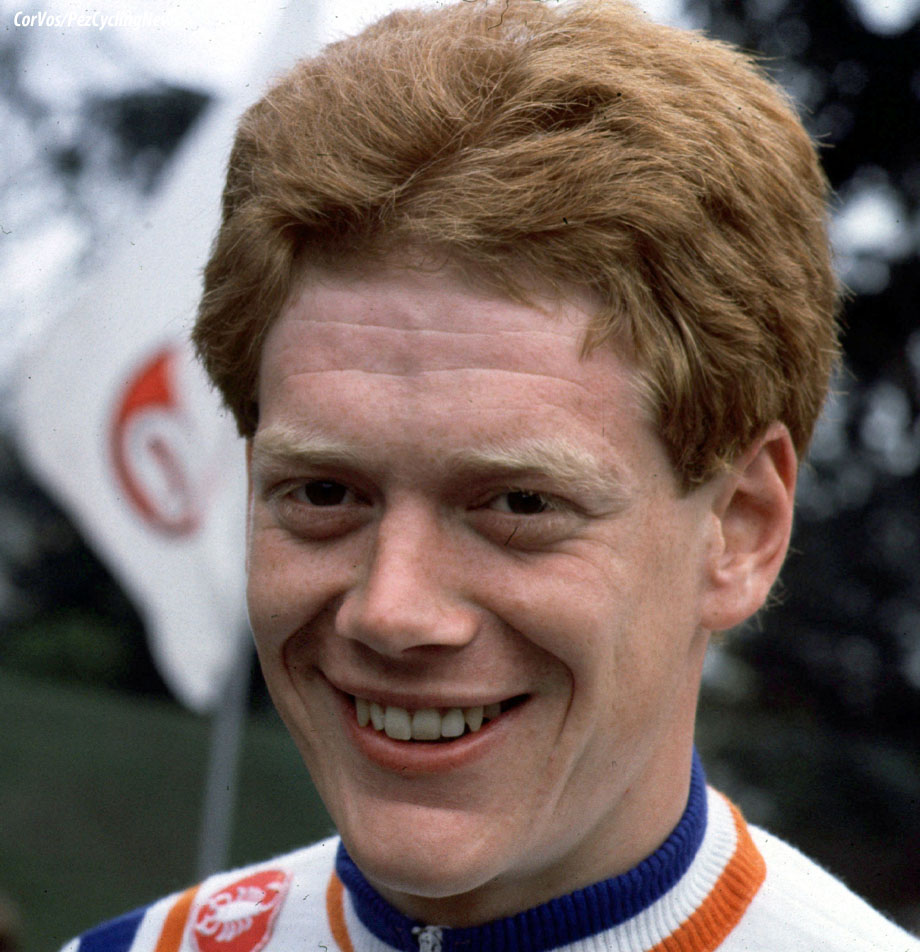
Do you think that the Dutch and European Media have done his memory justice?
“People who know and love cycling still do, every former team mate or rival we talk to speak very highly of Bert as a person and as a cyclist, but with the media it’s difficult.
“Some pieces were good and there were also the controversial ones.
“I (Erwin) think that there could be more respect and highlighting the great things he achieved as a cyclist, especially from the Dutch press.
“There are not many riders that could say they won 96 pro races in their career, big ones too.
“We had Laurens Ten Dam and Bram Tankink over in Bert’s museum at one time and they just couldn’t believe it, they were happy with having just one win!
“It’s the same in the city where Bert was Born Eindhoven, he got a special sports pin of the city when he was a cyclist but afterwards he’s simply forgotten.
“He’s the most successful rider from Eindhoven ever.
“Funny thing is that there is a street in Nijmegen named after him but nothing in his hometown, they blame it on budget cuts.
“A good thing is that there is an open TTT race in Eindhoven in June that from now on will have an award that will carry his name for the fastest team.
“His three former world champion mates will enter this race too as the last starting team, with in Bert’s place his uncle Geert as a remembrance to the achievement and also for Bert.”
With thanks to Erwin and the Oosterbosch family; rest in peace Big Bert.



